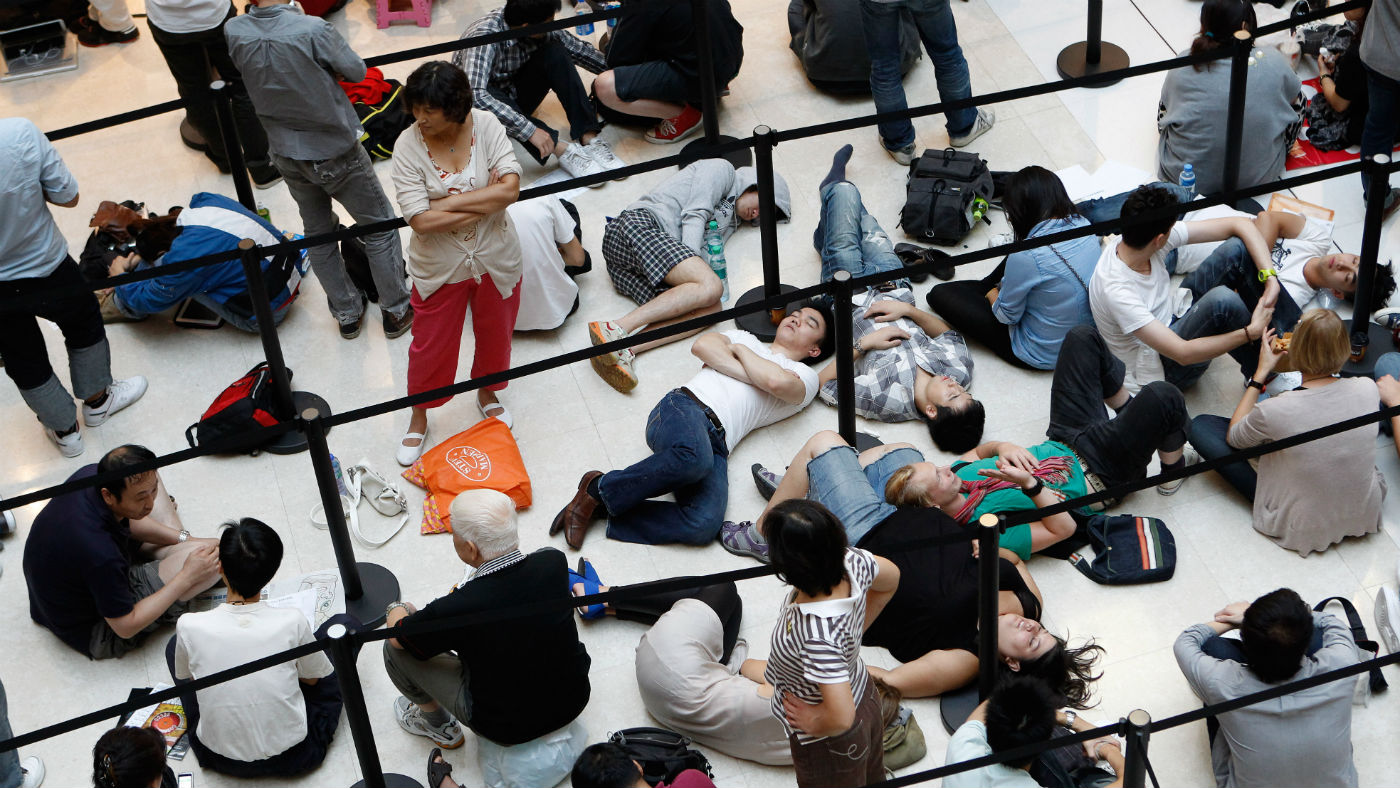How China’s personal ‘social credit’ scores will work
Beijing authorities will punish or reward citizens according to their ratings under new points system

A free daily email with the biggest news stories of the day – and the best features from TheWeek.com
You are now subscribed
Your newsletter sign-up was successful
Authorities in Beijing will judge each of the Chinese capital’s 22 million residents on their “personal trustworthiness” under a points-based system to be launched by 2020.
According to state media, the “Beijing Municipal Action Plan for Further Optimising the Business Environment” will monitor both individuals and companies’ financial credit and personal behaviour - and reward or punish them accordingly.
The plan does not include details about how the points system will work, but warns that those deemed untrustworthy will be “unable to move even a single step”.
The Week
Escape your echo chamber. Get the facts behind the news, plus analysis from multiple perspectives.

Sign up for The Week's Free Newsletters
From our morning news briefing to a weekly Good News Newsletter, get the best of The Week delivered directly to your inbox.
From our morning news briefing to a weekly Good News Newsletter, get the best of The Week delivered directly to your inbox.
Punishments for blacklisted citizens are “believed to include slowing internet speeds, reducing access to good schools for individuals or their children, banning people from certain jobs, preventing booking at certain hotels and losing the right to own pets”, The Independent reports.
A roadmap plan for a nationwide social credit scheme was first announced by the Chinese Communist Party in 2014, and around 30 local versions have been rolled out across the country, writes Daniel Sontag in an article on Medium.
Earlier this year, the government of Hangzhou province unveiled a trial scheme that rewards “pro-social” behaviors such as volunteer work, while punishing citizens who have bad credit or violate traffic laws, among other misdemeanours.
Meanwhile, in Jiangsu province, slandering someone online will slash 100 points from your “social score”, while manufacturing or selling fake products will lose you 35 points, according to Channel NewsAsia.
A free daily email with the biggest news stories of the day – and the best features from TheWeek.com
Government data shows that as of the end of May, citizens who scored poorly on the various schemes had been turned away from “more than 11 million flights and 4 million high-speed train trips”, Bloomberg reports.
Critics claims that social credit schemes are a covert means of helping the Chinese Communist Party increase its authoritarian grip on the country.
Samantha Hoffman, a consultant at the International Institute for Strategic Studies in London, told Wired that the Chinese government could be using such systems to identify and punish dissidents, under the guise of improving society.
“That’s why social credit ideally requires both coercive aspects and nicer aspects, like providing social services and solving real problems,” Hoffman said. “It’s all under the same Orwellian umbrella.”
However, Foreign Policy’s Jamie Horsley says that lurid press reports of Black Mirror-style totalitarian surveillance are overblown.
The key aim of the social credit scheme is ensuring “compliance with legally prescribed social and economic obligations and performing contractual commitments” in a country “still beset by rampant fraud and counterfeiting”, he argues.
Individuals and companies are blacklisted for “specific, relatively serious offences like fraud and excessive pollution that would generally be offences anywhere”, Horsley adds.
-
 How the FCC’s ‘equal time’ rule works
How the FCC’s ‘equal time’ rule worksIn the Spotlight The law is at the heart of the Colbert-CBS conflict
-
 What is the endgame in the DHS shutdown?
What is the endgame in the DHS shutdown?Today’s Big Question Democrats want to rein in ICE’s immigration crackdown
-
 ‘Poor time management isn’t just an inconvenience’
‘Poor time management isn’t just an inconvenience’Instant Opinion Opinion, comment and editorials of the day
-
 Epstein files topple law CEO, roil UK government
Epstein files topple law CEO, roil UK governmentSpeed Read Peter Mandelson, Britain’s former ambassador to the US, is caught up in the scandal
-
 Iran and US prepare to meet after skirmishes
Iran and US prepare to meet after skirmishesSpeed Read The incident comes amid heightened tensions in the Middle East
-
 Israel retrieves final hostage’s body from Gaza
Israel retrieves final hostage’s body from GazaSpeed Read The 24-year-old police officer was killed during the initial Hamas attack
-
 China’s Xi targets top general in growing purge
China’s Xi targets top general in growing purgeSpeed Read Zhang Youxia is being investigated over ‘grave violations’ of the law
-
 Panama and Canada are negotiating over a crucial copper mine
Panama and Canada are negotiating over a crucial copper mineIn the Spotlight Panama is set to make a final decision on the mine this summer
-
 Why Greenland’s natural resources are nearly impossible to mine
Why Greenland’s natural resources are nearly impossible to mineThe Explainer The country’s natural landscape makes the task extremely difficult
-
 Iran cuts internet as protests escalate
Iran cuts internet as protests escalateSpeed Reada Government buildings across the country have been set on fire
-
 US nabs ‘shadow’ tanker claimed by Russia
US nabs ‘shadow’ tanker claimed by RussiaSpeed Read The ship was one of two vessels seized by the US military